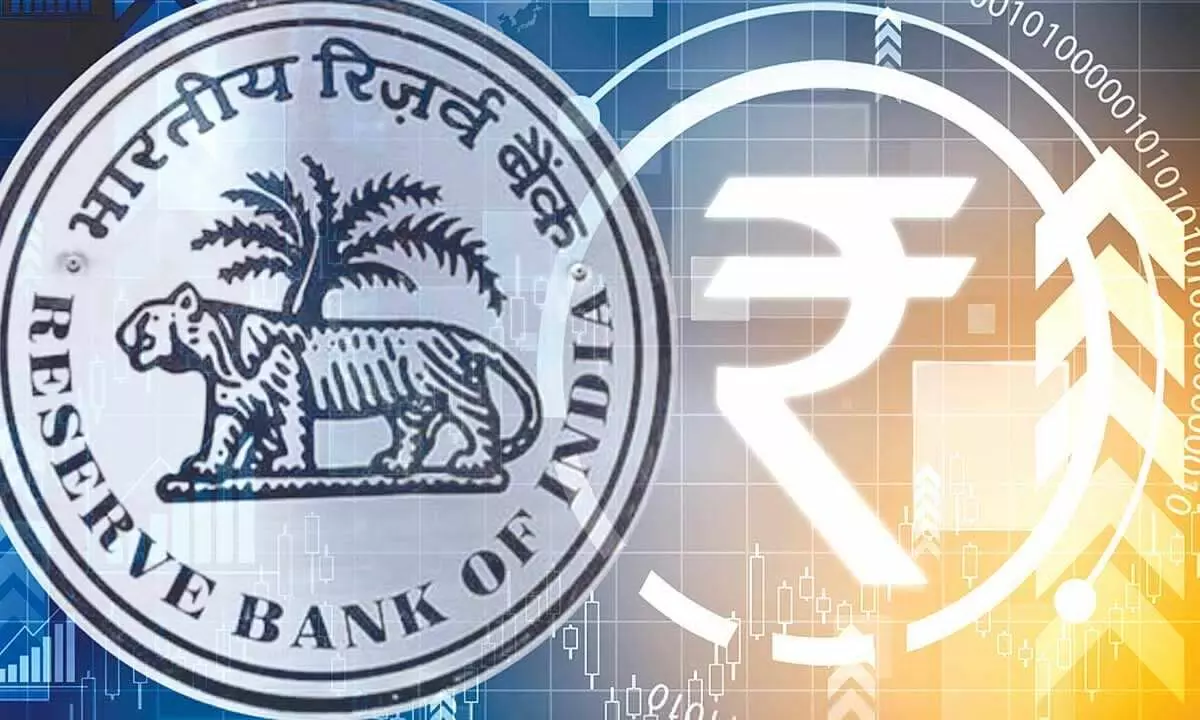Stakeholders welcome RBI's plan to introduce CBDC
The introduction of central bank digital currency in India, will herald our thought leadership in payments, says Kiya.ai CEO
image for illustrative purpose

We are in the midst of a technological revolution in the sphere of financial services. Technology and innovation per se are neither destructive nor constructive. It is the use cases that present the responsible or irresponsible sides of any particular innovation or technology. Reserve Bank shall continue with its approach where innovations which provide benefits to society are encouraged without compromising the stability of the financial system, says RBI Governor Shaktikanta Das
The stakeholders have welcomed RBI's plan to introduce central bank digital currency (CBDC) later during the current fiscal. While addressing a BFSI summit in Mumbai on Friday, the RBI governor, Dr Shaktikanta Das had said that the apex bank was working on the introduction of CBDC during the current fiscal year.
"We are now moving towards the introduction of a central bank digital currency (CBDC)," the RBI governor said. He had made announcement of a host of other initiatives during the event like RBI's payments vision focusing on the core theme e-payments for everyone, everywhere, everytime (4 Es). Bizz Buzz interacted with some of the stakeholder to have their views on the initiatives taken b the RBI.
Rajesh Mirjankar, MD & CEO, Kiya.ai, said: "The introduction of CBDC in India, will herald our thought leadership in payments, because our wide payment ecosystem and digital outreach will ensure the success of use cases in retail and commercial transactions using CBDC delivering high efficiencies in cross border processing and settlements."
The people in the industry feel that the Payments Vision 2025 is progressive and has an outlook to establish India as a powerhouse of payments globally. One of the most important forward-looking initiatives is the global outreach of UPI, RTGS, NEFT and Rupay cards with internationalization, where bilateral treaties with nations especially covering the USD, GBP and Euro will hugely benefit Indian residents and their counterparties overseas with online realization at lesser costs.
The study on creation of a digital payments protection fund (DPPF) if implemented will help customers who are defrauded. The vision of one nation one grid and on-realisation settlement will help all stakeholders, importantly with faster realization of funds. Exploring the regulation of operators in payments ecosystem including intermediaries and BigTechs will create a level playing field for all payment operators. Accommodating alternative authentication mechanisms and including payments using IoT will ensure our payment systems adapt to evolve new business models with the emergence of 5G along with IoT for edge computing and the metaverse.
India has made phenomenal strides in payments in the last few years, UPI and Rupay being the biggest success stories. Now taking them global will clearly establish India as the undisputed global leader in payments. Linking credit cards to UPI is another game-changer as would globalisation of India's CBDC.
Avinash Godkhindi, MD & CEO at Zaggle, says: "Regulatory clarity for big tech and fintechs as well as BNPL will really help entities plan long term and invest even more in fintech in India.
Overall, this is an extremely bold and ambitious vision document which demonstrates India's thought leadership in the global payment arena."
Shaktikanta Das said, "We are in the midst of a technological revolution in the sphere of financial services. Technology and innovation per se are neither destructive nor constructive. It is the use cases that present the responsible or irresponsible sides of any particular innovation or technology. Reserve Bank shall continue with its approach where innovations which provide benefits to society are encouraged without compromising the stability of the financial system."
The trend of technology driven changes in the financial services sector, he went on, will continue in the future. Participants and players in this sector will have to strive hard to remain relevant in the ever changing economic environment by continuously improving the quality of their governance; reworking their business strategies and business models; designing products and services with the customer in mind; ensuring operational resilience and risk management; and focussing on more efficient products and services by leveraging on technology. The possibilities are immense only if we are ready to embrace them while meeting the challenges!

